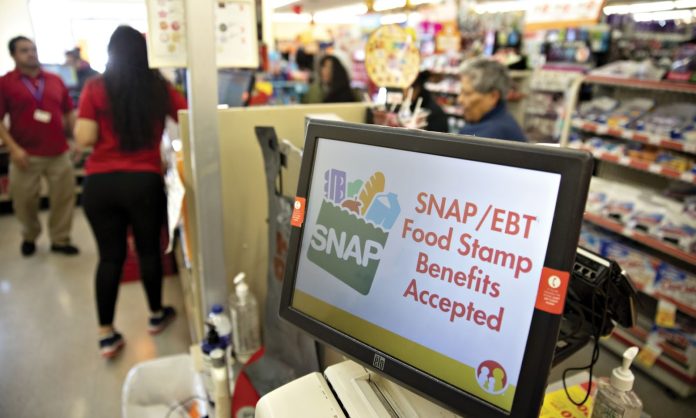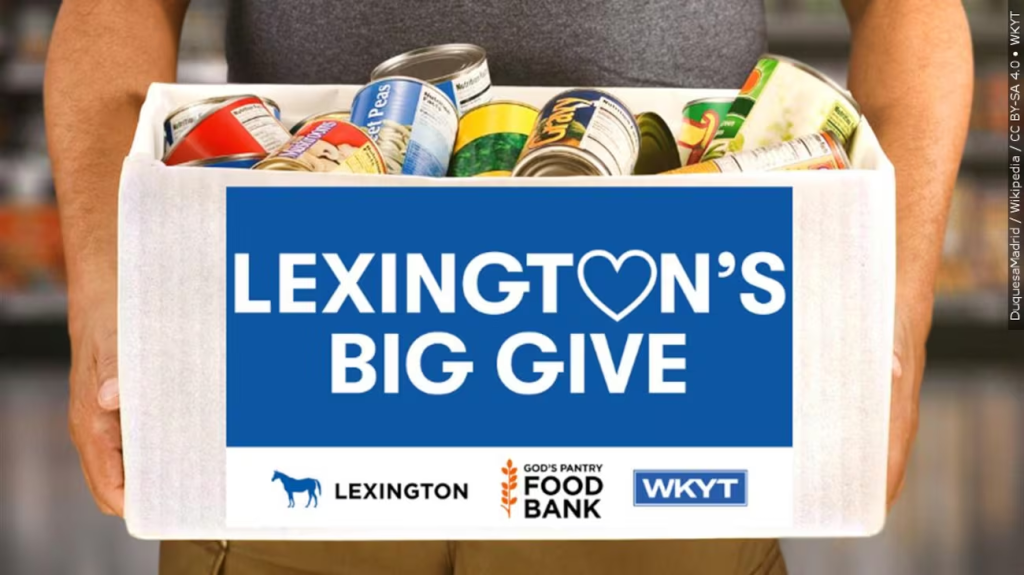
Americans across the country have had their social media feeds flooded with SNAP-related posts, videos, and calls for action. Users have reposted headings and articles centered around the decline of the federal program, spreading awareness of the potential elimination. What exactly is SNAP? How did it originate, and why is it crucial for millions living in the United States?
The Supplemental Nutrition Assistance Program, widely referred to as SNAP, is a federally funded program that distributes money for food to underprivileged Americans. Previously known as the Food Stamp Program, SNAP has paved its way to becoming the largest federal nutrition program in the country, feeding 1 in 8 impoverished persons per month. Amidst the federal government shutdown, nearly 42 million Americans are at risk of losing food and nutrition benefits. SNAP is not a new program by any means, though, hence the national pushback over the loss. How did it come to be?
The origins of SNAP date back to the Great Depression, as a way to distribute excess farm commodities such as wheat and livestock. With the passing of President Franklin D. Roosevelt’s New Deal, the Agricultural Adjustment Act of 1933 was established, providing more income for farmers and distributing food for the impoverished. Carrying out the mission in 1935, the Federal Surplus Commodities Corporation began to purchase, transport, and distribute food to relief agencies across the country. With the system seemingly replicating the services provided by the grocery industry, there was national defiance; in hopes of ending the discourse, Secretary of Agriculture Henry Wallace created the first Food Stamp Program.

Through years of research and experimentation, the Food Stamp Program was made permanent by the Food Stamp Act of 1964. Decades of implementation, expansion, and milestones led to the Farm Bill of 2008, changing the name of the Food Stamp Program to SNAP with the switch from paper to digital stamps.
As of today, SNAP helps Americans who are eligible to receive benefits towards food. Requirements to acquire monthly stamps include having a gross household monthly income at or below 130% of the poverty line. Recipients must also have proof of employment to maintain the average, individual amount of $187 per month. Upon achieving eligibility for SNAP benefits, individuals will be issued an Electronic Benefit Transfer (EBT) card, allowing for the purchase of food groceries.
So, why is SNAP so important, anyway? And, how will the delay of payments affect Kentuckians? Well, the access to food provided by SNAP helps families in poverty, veterans, and disabled people. With federal help with allocating money for groceries, people in need can properly budget their personal money for rent, bills, and non-food essential items without the worry of putting food on their plates. By delaying and minimizing SNAP benefits from being issued to Americans during the government shutdown, only 50% of eligible households will be covered by emergency funds, leaving millions across the country on their own to find money for crucial nutrition needs.
Zooming into home, approximately 600,000 Kentuckians, 225,000 of whom are children, utilize SNAP. Such vulnerable citizens will be left with empty cupboards, despite Governor Andy Beshear’s efforts to combat the disruption by suing the U.S. Department of Agriculture (USDA).
I reached a grim realization when researching the USDA’s extensive history of the Food Stamps Program. Despite their official and accurate information, the message headlining the website holds an unfortunate series of words: “Senate Democrats have now voted 13 times to not fund the food stamp program, also known as the Supplemental Nutrition Assistance Program (SNAP). Bottom line, the well has run dry. At this time, there will be no benefits issued November 01. We are approaching an inflection point for Senate Democrats. They can continue to hold out for healthcare for illegal aliens and gender mutilation procedures or reopen the government so mothers, babies, and the most vulnerable among us can receive critical nutrition assistance” (usda.gov).
With the clear bias referring to the Democratic party, along with the negative connotation regarding immigrants and gender-affirming care, the issue of accuracy in governmental sources has become relevant. If we can’t go to the federal archives for information, where can we go? If we can’t rely on our government for properly budgeting money and resources during a shutdown, who can we rely on?

All in all, the instability of SNAP benefits makes for a scary time in our country. If you or your family is struggling amidst the change, though, do not give up hope. The City of Lexington has partnered with God’s Pantry Food Bank and various community organizations to launch “Lexington’s Big Give”, a city-wide food drive. Collecting food for families across the Commonwealth, both God’s Pantry and The Family Care Center are available resources for Kentuckians in need.
You are not alone in this time of uncertainty. The well of SNAP will not run dry without a fight or support from our community.


